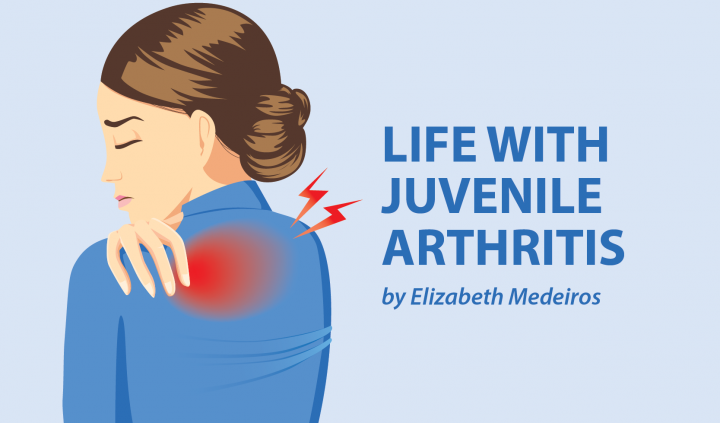It’s not easy to be young with “an old person’s disease.” Beyond the physical symptoms, kids often feel a significant emotional impact. While the world hears “arthritis” and assumes it begins and ends with a trick knee, JA patients face significant symptoms and intense treatments. It’s common for kids to feel lonely or misunderstood on their JA journey.
It can be hard to share how you really feel, especially as a kid. Small children may not have the vocabulary to express their feelings, older children may feel pressure to be brave, and teens may be labeled “overdramatic.” Many of my friends who grew up with JA expressed frustration over sharing their emotions with their parents. Some of them still struggle into their 20s. For that reason, I’ve compiled a list of things I wish my parents had known.
There are days when the fatigue is worse than the pain
Even though fatigue is a well-noted symptom of juvenile arthritis, people often forget about it. A lot of kids and especially teens with arthritis get bad reps for being lazy when nonproductivity is not their fault. School can be a difficult and exhausting experience for kids with arthritis; just carrying my backpack from class to class was exhausting, never mind gym class.
Parents, please know your child with arthritis may need more rest than other kids. Even when they look perfectly fine, they may still be dealing with that pesky symptom. Teach your child to find ways to rest while still getting tasks done. Perhaps instead of expecting homework to be done right after school, allow your child an hour or two to rest first (you might find their homework quality increases).
I’m uncomfortable in my own skin
This is a hard one to hear, but some kids with juvenile arthritis may simply feel uncomfortable. Besides the pain, they’re probably dealing with many other symptoms and medication side effects, including bloat, weight gain, acne, rashes, and psoriasis and psoriatic nails. While kids are resilient, they still may not feel good about themselves or confident.
So many of my friends wished their parents understood the discomfort and embarrassment. While it can help to give your child some suggestions on making them feel better, I find most kids (myself included) really needed to be built up in other ways. On days they’re feeling down, it might help to point out your child’s positive traits — let her know what a great friend she is, or that he’s an amazing artist.
I’m tired of seeing doctors, but I need a mental health checkup
Some kids will fight you tooth and nail to avoid seeing a psychologist. But many young people with juvenile arthritis face issues such as depression and anxiety. In my experience, depression makes the pain worse. Talking to a therapist can often help kids learn to express their feelings in a positive way.
Your child may be crying out for help, but be totally terrified of talking to someone. I’ve found many kids to be afraid that the therapist will tell them that the pain is all in their head. They may dread yet another diagnosis. But reassure your child that the therapist is there to help and that it’s not in their heads. It can help to be present for the first few sessions, or for every other session.
Talk it out
Parents, please reassure your child they can come to you with anything, and don’t dismiss them quickly. They may simply want to talk about what they’re feeling, for example, that their fatigue has increased. One of the best medicines is letting your child vent, be heard, and feel loved and understood.
***
Note: Juvenile Arthritis News is strictly a news and information website about the disease. It does not provide medical advice, diagnosis, or treatment. This content is not intended to be a substitute for professional medical advice, diagnosis, or treatment. Always seek the advice of your physician or other qualified health provider with any questions you may have regarding a medical condition. Never disregard professional medical advice or delay in seeking it because of something you have read on this website. The opinions expressed in this column are not those of Juvenile Arthritis News, or its parent company, BioNews Services, and are intended to spark discussion about issues pertaining to juvenile arthritis.


